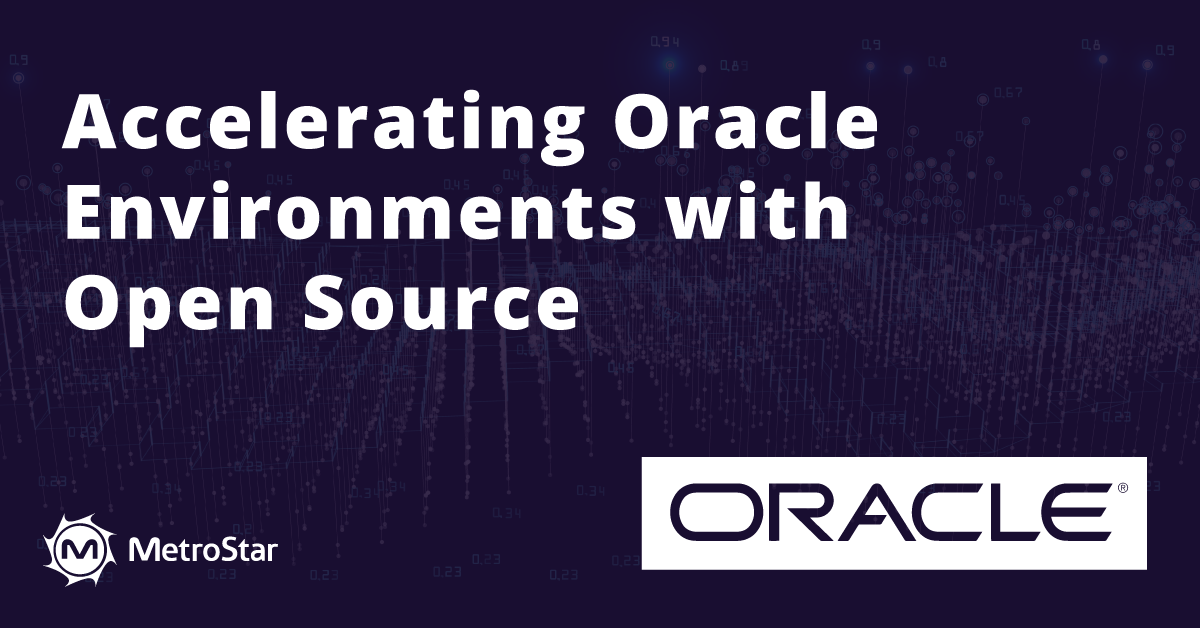Accelerating Oracle Environments with Open Source
6 MIN READ

When customers embark on the journey of modernizing or migrating their Oracle environments, particularly the E-Business Suite (EBS), one burning question often arises: What open-source tooling can turbocharge our efforts and slash costs? The allure of open source is undeniable, driving teams with their unparalleled accessibility and vibrant communities that spark endless curiosity and innovation.
Oracle's commitment to open-source is not just a side note; it's a central pillar of their strategy, boasting a robust portfolio of open-source technologies designed to enhance the entire application stack. While OpenJDK/Java is a familiar name to many, Oracle's open-source initiatives go far beyond this. From their powerful Kubernetes-based container management with Oracle Cloud Native Environment to GraalVM, a high-performance runtime that provides significant improvements in application efficiency, Oracle is reshaping the landscape with tools that often fly under the radar.
Before we discuss the strategies for delivering Oracle products using open-source tools, let's explore Oracle's rich history with open source. We’ll explore how its innovative ecosystem is unlocking new possibilities for cross-functional teams today and pushing the boundaries of what’s possible in enterprise environments.
A Glimpse into Oracle's Open Source History
In November 2023, I attended KubeCon CloudNativeCon in Chicago and was captivated by a short Keynote from Oracle. After some time away from Oracle environments, I had forgotten the significant impact of their contributions to the communities. To give you a glimpse, below are some of the important contributions Oracle has made and continues to drive, all at no cost and with no lock-in.
Most Notable Projects Contributed To:
-
Linux Kernel: Oracle has been a significant contributor to the Linux Kernel, enhancing its stability and performance, particularly for enterprise environments.
-
OpenJDK/Java: As the steward of Java, Oracle drives the development of OpenJDK, ensuring the platform remains robust, secure, and high-performing.
-
MySQL: Oracle continues to develop and support MySQL, the world's most popular open-source database, providing a reliable and scalable solution for a variety of applications.
-
OpenSSL: Contributing to the OpenSSL project, Oracle helps ensure secure communications over computer networks, vital for safeguarding data integrity and privacy.
-
VirtualBox: Oracle maintains VirtualBox, a powerful x86 and AMD64/Intel64 virtualization product for enterprise and home use.
-
GraalVM: Oracle’s high-performance runtime provides support for multiple languages and execution modes, offering improved efficiency and flexibility for developers.
-
Kubernetes and Kubernetes Operators: Oracle actively contributes to Kubernetes and has developed operators to simplify the deployment and management of Oracle workloads on Kubernetes clusters.
-
All 250+ Oracle open-source projects are listed here: https://opensource.oracle.com/
Some Cool Open Source Stats:
-
#1 Contributor to the Linux Kernel
-
5000+ contributors to Oracle open-source projects
-
70%+ code contributions back to OpenJDK from Java
-
Founding members of the Linux Foundation, the Eclipse Foundation, and the Java Community Process.
-
10,000+ Commits Annually to Open-Source Projects
-
Significant Investment in Open-Source Security
-
Read more here: https://developer.oracle.com/open-source.html
Accelerate Oracle Suite Setup with Open Source and DevSecOps Methodologies
In the sections below, I've included some valuable tips on leveraging Oracle's open-source projects and other popular tools to streamline your Oracle EBS/Database setup. Since Oracle EBS utilizes the open-source Apache web server and is ideally deployed on Linux (with Oracle Linux being a strong option), integrating DevSecOps principles – automates everything! enhances the efficiency and security of your setup, building on traditional systems engineering foundations.
-
Leverage Oracle's VirtualBox and Vagrant to support reproducible provisioning, test-driven development, and automation needed for upgrades and migrations or help determine root cause analysis quicker.
Recommendations:
-
Use a Configuration Management tool such as RedHat's Ansible or something similar. Ansible can install databases, set up users, groups, DISA STIG security, and other essential configurations to set up Oracle products.
-
Leverage centralized version control software like GitLab for AutoConfig, scripts, configurations, artifacts, database migrations, and security baselines.
-
Leverage Oracle's MySQL and Open Database Connectivity (ODBC) drivers to help prototype custom data integration and management for EBS/Oracle Databases. It can speed up the development of extensive reporting requirements that EBS doesn't support out-of-the-box. MySQL is light, free, and well-maintained by a large community.
Recommendations:
-
Consider using a Cloud Service Provider (CSP) to accelerate migrations, upgrades, integrations, and scalability.
Using some of the tools and methods mentioned above helps you get started with repeatable and safe DevSecOps practices, but this only scratches the surface of what is possible. To truly transform your Oracle environments, I recommend challenging and going beyond traditional systems engineering approaches. Oracle is making significant strides in modernizing its products to work seamlessly within CSPs, Kubernetes, and other Cloud-Native technologies, as demonstrated at KubeCon CloudNative 2023.
Systems Engineering must evolve to effectively embed security, accountability, and full automation from development to production. Bridging the gaps with DevSecOps can accelerate the delivery of resilient systems while reducing costs and leveraging open and community-based software tooling. Here are a few additional considerations to enhance your Oracle environment management:
If you’re looking for more tailored advice or want to discuss how these practices can be specifically applied to your organization, feel free to reach out. Our Open Source Strategy Team is available to answer your questions and provide further insights. Contact us to explore how we can help you accelerate your Oracle environment with cutting-edge open-source tools and DevSecOps methodologies.
Written By:
Tim Marcinowski
Sr. Director of Open Source Strategy
you might like these too
Accelerating UI Development with MetroStar's Comet and AI
AI/ML | Human-Centered Design | Innovation Lab
Why LLM Context Limits Undermine Mission Readiness and How to Fix Them
Feature | AI/ML | Innovation Lab
Delivering Real-Time Insights for Faster DoD Mission Planning
MetroStar Culture | Human-Centered Design | Innovation Lab
want to stay in the loop?
Never miss a thing by signing up for our newsletter. We periodically send out important news, blogs, and other announcements. Don’t worry, we promise not to spam you.

